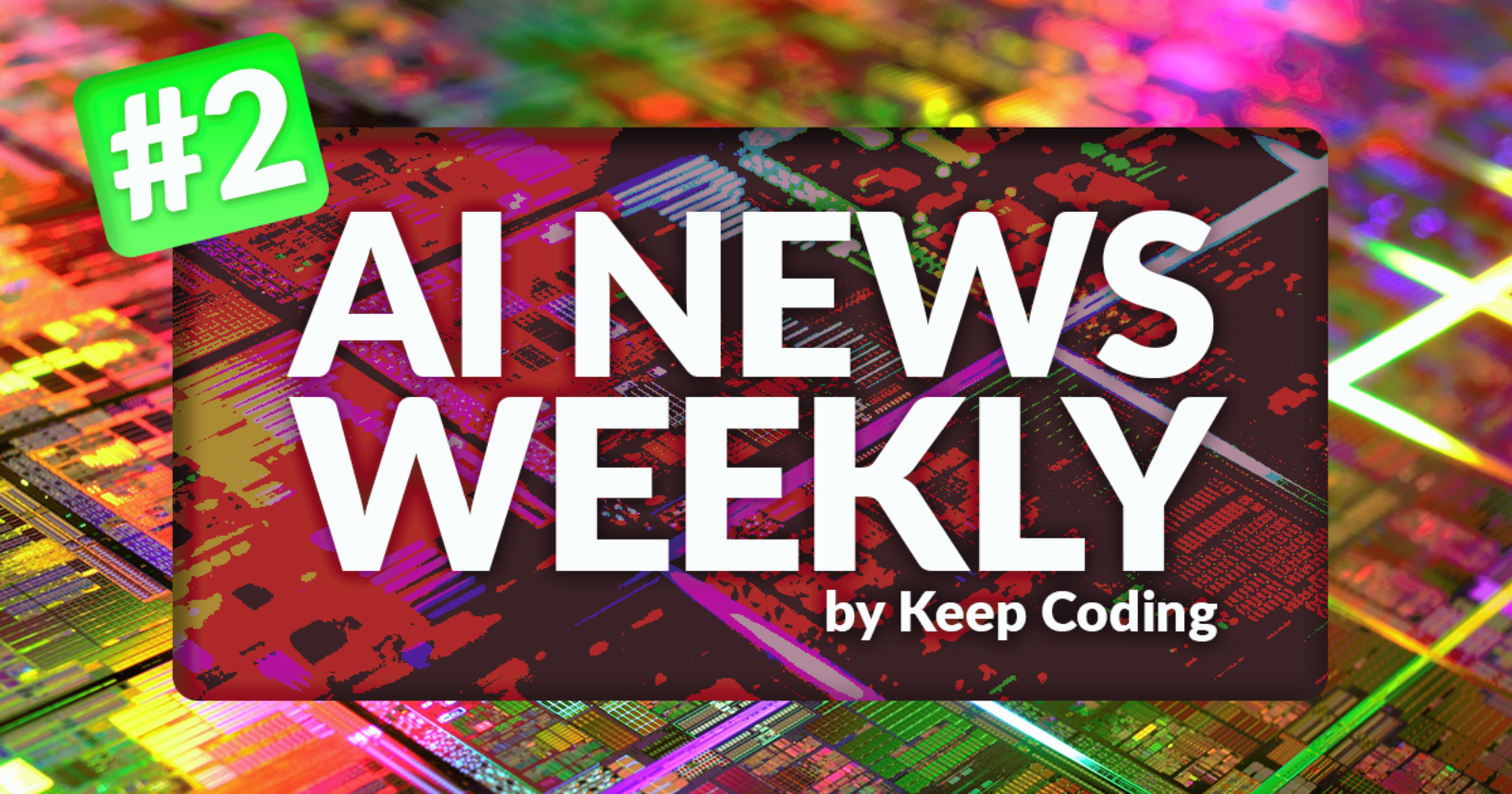AI News Weekly by Keep Coding #2
 Keep Coding
Keep Coding
DeepMind Unveils Ground breaking AI Agent, SIMA, for Video Game Environments
The Rundown: Google's AI powerhouse, DeepMind, has rolled out SIMA, a sophisticated AI agent capable of understanding and executing natural language instructions across a myriad of video game landscapes.
The Details:
SIMA's training encompassed nine distinct video games, such as No Man's Sky and Teardown, to develop versatile skills.
The AI operates by interpreting only images and text, simulating human interaction methods without the need for direct access to game code or APIs.
It underwent evaluation across approximately 1,500 diverse tasks, including navigation, interacting with objects, and gathering resources.
Why It Matters: This development not only revolutionizes how AI could interact within gaming spheres, potentially serving as versatile in-game companions but also extends implications for AI's collaboration with humans in real-life applications and tasks.
Figure AI Debuts a New Robot Integrated with ChatGPT for Enhanced Task Execution
The Rundown: Figure AI has recently showcased a robot, integrated with OpenAI's conversational model, that can understand and interact with its environment in an unprecedented demonstration of autonomous capabilities.
The Details:
The demonstration revealed Figure 01 engaging in natural conversation, sorting objects, and performing context-specific actions autonomously.
Unlike pre-programmed robots, Figure 01 operates based on learned behaviors and responds at a human-like pace.
The robot's capacity to reflect on its actions and recall past interactions underlines its advanced cognitive capabilities.
Why It Matters: Coming just days after a significant partnership announcement and funding round, the demo underscores the rapid advancements in robot autonomy and intelligence, hinting at a future where AI can more seamlessly integrate into everyday tasks and environments.
AI's New Frontier: Revolutionizing Human Biology Understanding
The Rundown: AI technology is transcending its conventional roles, venturing into the biomedical field to offer new insights into human biology, as demonstrated by a team from Stanford.
The Details:
The AI model was fed data on chemical and genetic elements, allowing it to categorize cells and uncover previously unseen patterns.
This approach has led to the discovery of a cell type crucial in low-oxygen survival scenarios, resolving a longstanding scientific mystery.
The advancements continue as AI begins to automate traditional compound testing processes, promising faster and more cost-effective research.
Why It Matters: AI's incursion into biological research is setting the stage for monumental shifts in medicine, agriculture, and other critical fields, with potential for ground breaking discoveries and innovations.
Cognition's Devin: A New Milestone in AI-Driven Software Development
The Rundown: Cognition introduces Devin, an AI model that autonomously completes complex software engineering tasks, showcasing a significant leap in AI capabilities.
The Details:
Devin handles end-to-end aspects of software development, emphasizing natural language interaction for streamlined project management.
The AI model has demonstrated exceptional skills, particularly noted in its performance on the SWE-Bench coding benchmark.
Access to Devin is currently exclusive, with plans for expanded availability as Cognition scales up.
Why It Matters: Devin's introduction marks a transformative moment in software development, highlighting AI's growing capacity to assume critical and sophisticated tasks within the industry.
EU Sets Global Benchmark with Comprehensive AI Regulations
The Rundown: The European Parliament has enacted the Artificial Intelligence Act, introducing stringent measures and establishing a new global standard for AI conduct and application.
The Details:
The legislation outlaws certain AI applications like biometric identification and manipulative software while imposing strict guidelines on high-risk AI usage.
It aims to ensure transparency, human oversight, and safety in AI applications affecting critical sectors.
The AI Act will be implemented in phases, starting a few months post-ratification.
Why It Matters: As the first of its kind, the AI Act could dictate future global norms for AI, balancing innovation with ethical considerations and public welfare. The repercussions of these regulations could significantly influence the development and deployment of AI technologies worldwide.
Image of the Week
Prompt: Charlie Chaplin sits in a restaurant with a smartphone in his hand. looking at the phone. frowning. documentary photo --ar 3:4 --style raw. Credits: AI Hunt.
Want to get the news earlier? Subscribe to our weekly newsletter.
Subscribe to my newsletter
Read articles from Keep Coding directly inside your inbox. Subscribe to the newsletter, and don't miss out.
Written by
